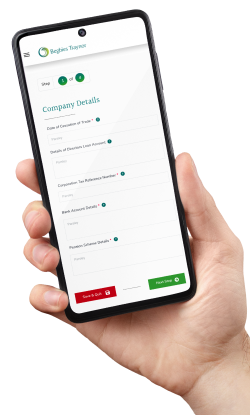If you withdraw money from your company which isn't classed as salary, dividends, or repayment of expenses, the money must be accounted for through your director’s loan account (DLA).
This is an account held within your company’s books, which records each withdrawal and repayment. Specific rules exist for repaying money owed to a company by a director, and so long as the director is able to repay the money taken out of the company within nine months and one day of the company's financial year-end, running an overdrawn director's loan is typically not a problem.
Issues occur, however, if there is an overdrawn director's loan balance and the company becomes insolvent and enters into liquidation.
Concerned about the National Insurance increase?
For the 2024-25 tax year, the rate of employer National Insurance increases from 13.8% to 15% adding yet more pressure onto already squeezed cash flows. If you are worried about the impact this could have on your company’s finances, talk to the experts at UK Liquidators. As licensed insolvency practitioners we can explain your options and help you plot a way forward. Call today on 0800 063 9262.
When your director’s loan account is overdrawn, it essentially means that you owe money to your limited company. If the business becomes insolvent and ultimately has to enter liquidation, the money you owe your company by way of the overdrawn director's loan account, becomes an asset just like any other sum owed to the company would be.
When a liquidator is appointed, one of their key roles is to identify and recover company assets so that the proceeds can be used to repay creditors and clear the debts of the company as far as possible. This includes recovering any funds owed to the business, whether this is through unpaid invoices or an overdrawn directors' loan account.
If your directors' loan account is overdrawn and you are considering liquidating your company, you should be prepared to repay the money you took out of the company and bring the account back up to a nil balance.
Liquidation Portal
For Company Directors

If you run an overdrawn director’s loan account and the company subsequently has to enter into liquidation, the appointed liquidator will require that you repay the company the money you took out. You will be expected to use personal funds to do this.
When considering liquidation, you should ensure you discuss the implications of having an overdrawn directors' loan with your insolvency practitioner to ensure you understand what is expected of you. The insolvency practitioner is duty-bound to maximise asset realisations for creditors, however, you may be able to negotiate the repayment of your director's loan depending on your personal circumstances and your ability to repay.
Start your online liquidation today
If you have decided liquidation is the right option for your limited company, you can take the first step and begin the process online using our online portal. Starting the process is quick, simple, and can be done at a time that suits you. Your information will be submitted to your local UK Liquidators insolvency practitioner who will be with you every step of the way. Click here to start your company’s liquidation online.
If you believe your company may need to be liquidated and you have an overdrawn directors' loan account, it’s important to seek the help of a licensed insolvency practitioner as soon as possible. This will help you better understand your responsibilities, and the potential ramifications if you can’t repay.
UK Liquidators are insolvency and liquidation specialists, and can provide further guidance on overdrawn directors’ loan accounts in cases of liquidation. Please call our partner-led team to arrange a free, same-day consultation. We work from a network of nationwide offices, and can quickly present your best options.
By completing the test, you will receive:
If you are considering liquidation for your company, taking expert advice at an early stage is crucial. At UK Liquidators, our team of licensed insolvency practitioners are committed to providing limited company directors with the help and advice they need to make an informed decision.




Looking for immediate support?
Complete the below to get in touch